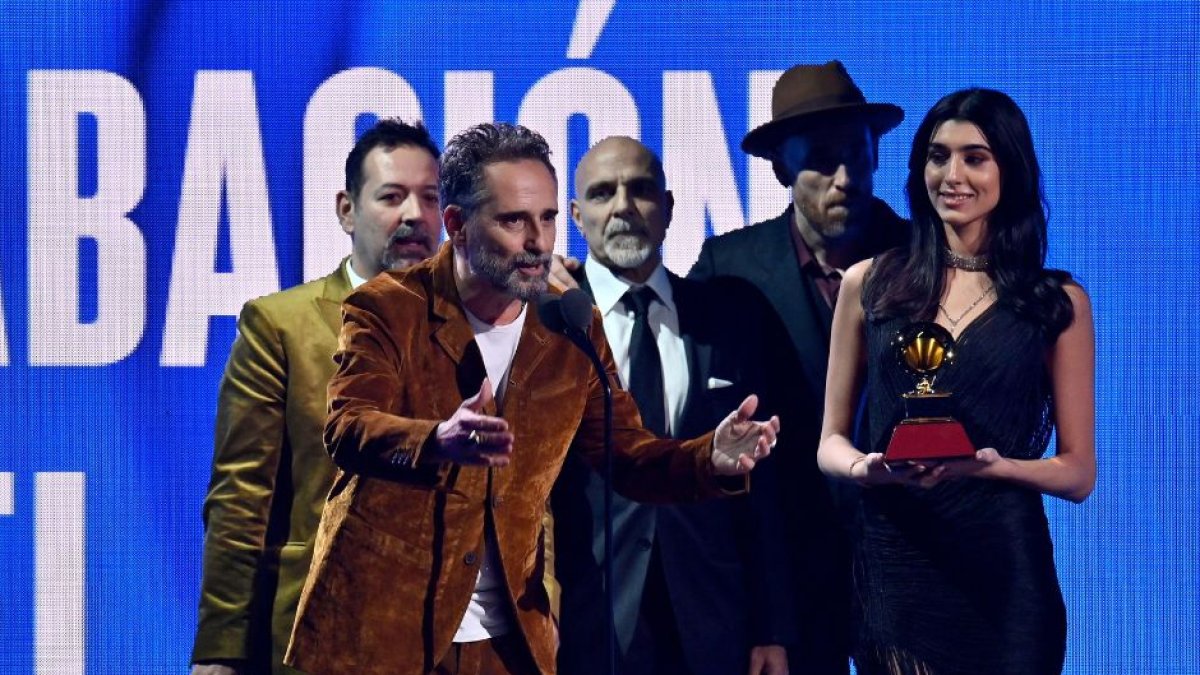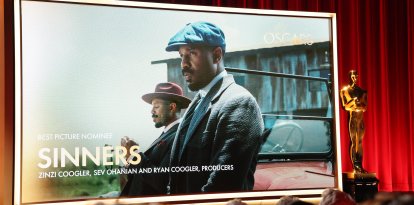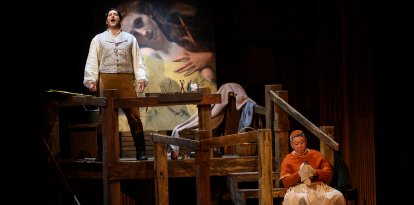Jorge Drexler triumphs at the Latin Grammy Awards
Singer Rosalía was censored by television while performing 'Hentai', one of the tracks from 'Motomami' which won Best Album of the Year.

Jorge Drexler, mejor
On Thursday Las Vegas dressed up to host the Latin Grammy Awards. The event, held at the Michelob Ultra Arena, featured Jorge Drexler, Bad Bunny and Rosalía, who won, respectively, seven, five and four gramophones.
The gala, presented by Luis Fonsi, Laura Pausini, Thalía and Anitta, featured a performance by the Catalan singer Rosalía, the winner of Best album of the year for Motomami. She got a little upset when her song, Hentai, which she performed on the piano, did not pass the television censorship and was silenced live with a beep, which she later acknowledged to the media in the press conference following the gala:
95 year old woman awarded Best New Artist
Angela Álvarez was another of the night's big winners. At the age of 95, the elderly woman became the Best New Artist along with Mexican Silvana Estada. Her story is worthy of a movie. She has no musical knowledge beyond singing in the church choir, but recording with her grandson Carlos José has made her a recognized name. She recently told her story to CNN and what it means to her to perform her songs:
As she herself recounted, it was her grandson, Carlos José, who informed her of her nomination for a Latin Grammy, a recognition that the Cuban singer still finds hard to believe:
Fame, however, does not bother her. In the Michelob Ultra Arena, she moved like a fish in water and previously assured El Mundo that she was taking it easy thanks to "a secret that helps her cope with everything", her faith:
List of winners
- Album of the year: Motomami, by Rosalía.
- Song of the year: Tocarte, by Jorge Drexler and C. Tangana.
- Recording of the year: Tocarte, by Jorge Drexler and C. Tangana.
- Best ranchera/ Marichi album: EP #1 Forajido, by Cristian Nodal.
- Best Traditional Pop Vocal Album: Aguilera, by Christina Aguilera.
- Best Contemporary Tropical Album: Cumbiana II, by Carlos Vives.
- Best Urban Music Album: Un verano Sin Ti, by Bad Bunny.
- Best new artist: Angela Álvarez and Silvana Estrada.
- Best pop vocal album: Dharma, by Sebastián Yatra.
- Best salsa album: Pa'allá voy, by Marc Anthony.
- Best Regional Mexican Song: Como lo hice yo, by Edgar Barrera, Matisse and Carin León.
- Best Latin Music Album for Children: A la Fiesta de la música vamos todos, by Sophia.
- Best classical music album: Legado, by Berta Rodas and Sebastián Herníquez.
- Best Arrangement: El Plan Maestro, by Fernando Velázquez and Jorge Drexler.
- Best Tejano Music Album: Para que baile mi pueblo, by Bobby Pulido.
- Best pop/rock album: Los Años Salvajes, by Fito Páez.
- Best rock album: Unas vacaciones raras, by El Mató a un Policía Motorizado.
- Best traditional tropical album: Live in Marciac, by Gonzalo Rubalcaba and Aymée Nuviola.
- Best Instrumental Album: Maxixe Xamba Groove, by Hamilton Holland.
- Best samba/pagode album: Numanice #2, by Ludmilla.
- Best flamenco music album: Libres, by Las Migas.
- Best Latin Jazz/ Jazz Album: Mirror Mirror, by Eliane Elias, Chick Corea and Chucho Valdés.
- Best Brazilian popular music album: Indigo Borboleta Anil, by Liniker.
- Best reggaeton performance: Lo siento BB, performed by Tainy, Julieta Venegas and Bad Bunny.
- Best Christian Album (in Spanish): Viviré, by Marcos Witt.
- Best contemporary pop album in Portuguese: Sim Sim Sim, by Bala Desejo.
- Best recording engineering for an album: Bryan Hernández, Shin Kamiyama and Michael Larson for Rosalía's Motomami album.
- Best music video short version: This Is Not America, by Residente and Lisa-Kaindé.
- Best cumbia/vallenato album: Feliz Aniversario, by Jean Carlos Centeno and Ronal Urbina.
- Producer of the Year: Julio Reyes for songs such as Cuántas Veces, by Carlos Rivera and Reik; Nada Particular, by Miguel Bosé and Carlos Rivera; and, Pa'lla Voy, by Marc Anthony.
- Best song in Portuguese language: Verdo Sardo, by Marisa Monte and Jorge Drexler.
- Best Rock Song: Lo Mejor de Nuestras Vidas, by Fito Páez.
- Best pop/rock song: Los Años Salvajes, by Carlos Vives and Fito Páez.
- Best Alternative Song: El día que estrenaste el mundo, by Jorge Drexler.
- Best pop song (tie between two songs): La Guerrillera de la Concordia, by Jorge Drexler; and, Tacones Rojos, by Sebastián Yatra and Pablo María Rousselon.

























